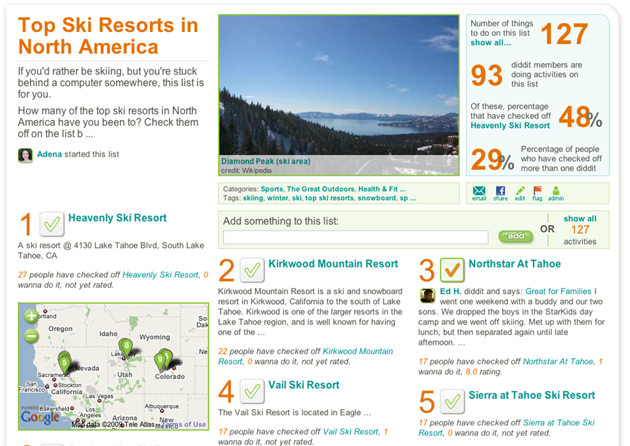Live Nation Aspires to Be One-Stop Shop for Sponsors
NEW YORK (AdAge.com) -- The NFL, MLB and Live Nation? The world's largest concert promoter wants to be mentioned in the same breath as any sports league when marketers plot their event sponsorships.
Starwood Hotels & Resorts will be the official hotel partner for select Live Nation venues.
In recent months, the music company has been quickly consolidating its properties to provide sponsors the largest possible audiences at concerts, on the web and, now, in hotels, through a new partnership with Starwood Hotels & Resorts.
Starwood, a hospitality group that includes the Westin, Sheraton and W Hotels, will be the official hotel partner for select Live Nation venues, including the House of Blues clubs, offering Starwood preferred-guest members special ticket offers, premium seats and exclusive artist experiences. Live Nation will also encourage its artists to stay in Starwood hotels while they're in town. (Note to fans: Stalking your favorite singer just got easier.)
Merger talks with Ticketmaster
Starwood will sponsor a special "Where to Stay" feature on LiveNation.com, the company's newly revamped ticketing site, originally designed to compete with Ticketmaster but now the subject of possible-merger talks.
The Wall Street Journal reported on Feb. 4 that executives at Live Nation and Ticketmaster were close to reaching a merger agreement that would give Live Nation control of ticketing for all Ticketmaster concerts, or 70% of the concert-ticket market, according to analyst estimates. Live Nation executives declined to comment.
A merger would face increased scrutiny under the Obama administration, given Ticketmaster's existing ownership of nearly three-quarters of the concert market. The combined corporation, to be called Live Nation Ticketmaster, received a neutral review from Benjamin Mogil, a media analyst at Thomas Weisel Partners in San Francisco, who called the deal "positive" for Live Nation.
Growing sponsorship branch
Live Nation's corporate mantra states that artists used to use their tours to promote albums, but now they use their albums to promote their tours. That's where the company's growing sponsorship branch comes in.
Russell Wallach, Live Nation's president of North American Alliances, told Ad Age the day before the merger rumors circulated that Live Nation's goal is to become the one-stop shop for event-marketing dollars. "I look at every league and believe no one can replicate the model we have in owning tickets, relationship with artists, owning venues and our digital assets combined," he said.
In the past year, that positioning has started to pay off for Live Nation, which saw a 12.5% year-over-year increase in sponsorship dollars to $74.8 million during the third quarter of 2008. Total attendance during that quarter was also up 5.7% to 17.5 million people, a sign that the looming recession had little effect on the summer concert season.
Anchoring Live Nation's summer sponsorships was Burger King, which teamed up with Live Nation for the Jonas Brothers tour to promote the launch of its apple fries. Not only did the fast feeder sponsor on-site product sampling, exclusive content and online tie-ins, it also produced a viral video halfway through the tour's run that has since generated more than 1 million hits on YouTube.
Multiyear, multimillion-dollar deal
A similar formula will be applied to the Starwood partnership, which Gretchen Kloke, the hotel company's senior director-global loyalty marketing, described as a multiyear, multimillion-dollar deal. "Live Nation opens up the doors for us to get in front of millions of concertgoers in their venues and websites," she said.
Starwood will also be able to track any new revenue that comes into its hotels on a market-specific basis as a direct result of its Live Nation partnership, the key metric the marketer will use to determine the new deal's success. "The biggest thing for us is how our members will respond to the offerings we provide," Ms. Kloke said.
Live Nation is showing no signs of slowing its expansion: It also announced a new partnership with CBS Radio this week. Under the new pact, both companies will jointly produce live concerts and experiential events at CBS Radio stations and markets, giving CBS a crack at the growing number of marketers that advertise at Live Nation events. Live Nation's sponsors grew to 770 in the third quarter of last year from 719 in the same period in 2007.
"For many years we have enjoyed a very successful relationship with Live Nation, helping us grow our radio shows across the country into some of the biggest events of the year," CBS Radio CEO Dan Mason said in a statement. "With their national platform of venues and their team of talented promoters and marketers, we feel we will be able to expand the breadth of radio shows we offer on-site, on-air and online in a substantive way over the course of this agreement."
Venture into music distribution
Up next for Live Nation is its first venture into music distribution. It has successfully wooed artists such as Shakira, Madonna and Nickelback out of their major-label recording contracts into "360 deals," which give Live Nation the rights to everything from the artist's merchandise to tickets to new albums. Mr. Wallach said he expects to announce the first album to be distributed by Live Nation in the coming months, and he is already speaking with package-goods marketers to sponsor the new kind of album launch.
"We want to see how we can distribute music globally, selling music in locations from Maine to India," he said.








 Paris-based
Paris-based 
